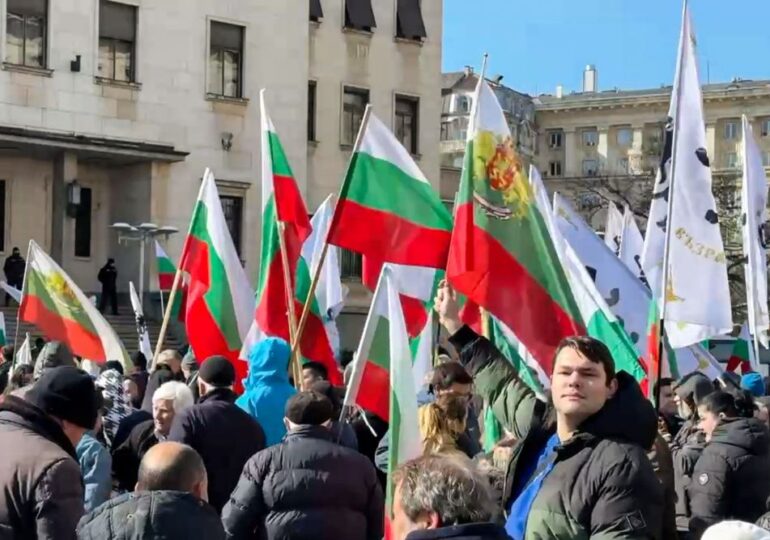Thousands of supporters of the ultranationalist Revival party in Bulgaria clashed with the police on Saturday as they tried to storm a European Union mission building in protest against the country’s plans to adopt the euro currency next year.
Anti-government protesters, chanting „Resignation” and „No to the euro currency,” threw red paint, firecrackers, and Molotov cocktails at a EU building in Sofia.
They set fire to the institution's gate before being stopped by the police. The crowd was dispersed with tear gas.
Ten police officers suffered minor injuries, and six people were detained, said a senior police official quoted by Reuters after the protest.
Mannequins representing European leaders - including European Central Bank (ECB) President Christine Lagarde - were burned.
European Commission President Ursula von der Leyen denounced the "scandalous scenes in Sofia, where our European office was vandalized."
"In Europe, we exercise our right to peaceful protest. Violence and vandalism are never the solution," she wrote.
The government condemned the attack on the EU buildings, stating in a press release that such demonstrations "are unacceptable and contrary to the principles of the rule of law."
"Attacks against institutions are unacceptable," especially "when they come from sympathizers of a party with representatives in the European Parliament," wrote the Sofia Executive.
The new government of Bulgaria, approved last month after early elections in October, reaffirmed the country's commitment to join the eurozone next year.
Bulgaria has been waiting for many years to join the eurozone, and the Bulgarian government has recently intensified its efforts to meet the requirements of the ECB.
The Bulgarian far-right is calling for a referendum on keeping the national currency, the lev, but Parliament refuses to organize it, and the Constitutional Court has approved this decision.
Bulgaria's plans to join the eurozone have been postponed twice due to the failure to meet inflation targets.

